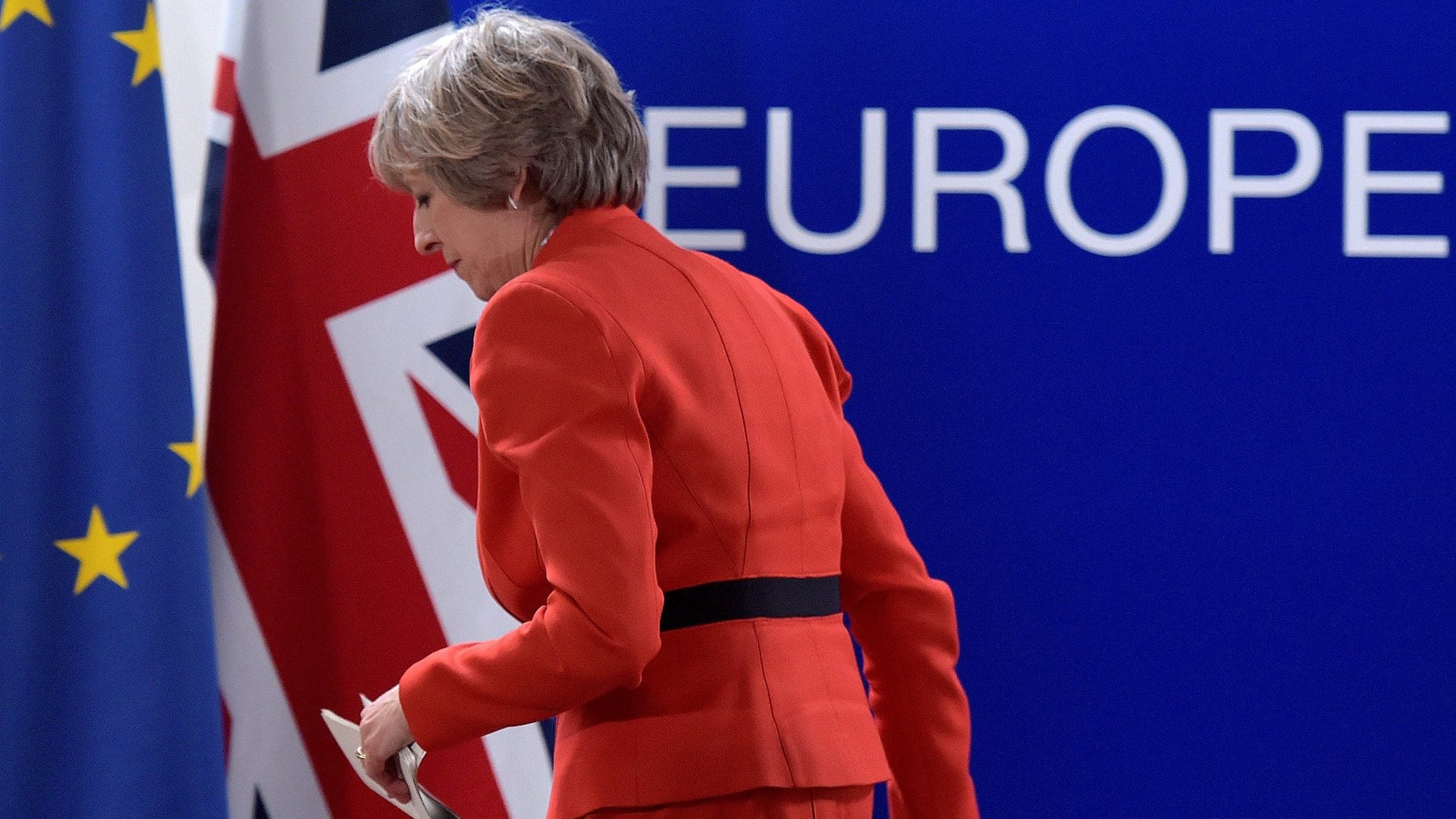Theresa May: Over 100 days of leadership and only one thing remains clear about the future of the UK
It’s been over a hundred days since Theresa May became Britain’s new prime minister and took the unenviable job of steering the country through Brexit. Since taking office, May has insisted, repeatedly, that “Brexit means Brexit,” but it’s fair to be confused about what that means; Britain is still “open for business,” while promises swirl of the drawbridge finally being pulled up.


It’s been over a hundred days since Theresa May became Britain’s new prime minister and took the unenviable job of steering the country through Brexit. Since taking office, May has insisted, repeatedly, that “Brexit means Brexit,” but it’s fair to be confused about what that means; Britain is still “open for business,” while promises swirl of the drawbridge finally being pulled up.
May herself has been forced to play both sides of the issue. On May. 26, a month before the referendum, May—then the UK’s longest-running home secretary—spoke of the serious risks to business if Britain left the EU. In an hour-long private conversation with investment bankers, which has since been leaked, she said “the economic arguments are clear,” adding, “I think being part of a 500 million [person] trading bloc is significant for us.” But three months later, May indicated that as prime minister, she would prioritize ending the jurisdiction of EU law and free movement from Europe over access to the single market.
She has flip-flopped in other ways. For example, she warned before the referendum that a leave vote would end an open border between Ireland and Northern Ireland, but is insisting now that she will work closely with the Irish government and Northern Irish executive to maintain free movement. She has backed down from a refusal to guarantee the rights of EU migrants, and now promises to allow EU citizens the right to remain in the UK “so long as” British expats receive the “same treatment” in the EU. She even switched positions on a controversial third runway at London’s main airport, Heathrow, agreeing to back a proposal to build the runway, despite spending years calling on the previous Labour government to scrap the same plan.
But there’s one thing May has remained consistent on as home secretary and Britain’s new prime minister: immigration. It’s been described as an “obsession,” by ex-business secretary Vince Cable, who blames May for stalling talks on an EU free trade deal with India. While no one knows whether the UK will remain within the single market, or whether certain sectors will have special privileges, it is clear that May plans to use Brexit as a means to bring about a goal that has remained elusive for her entire political career.
As home secretary, May tried, and failed, to reduce immigration levels to the tens of thousands. (Her controversial ”go home or face arrest” van advertisements resulted in just 11 people leaving the country.) In a desperate bid to cut down on immigration, May had even floated the idea of expelling foreign students as soon as they graduated.
As prime minister, May has already presided over the announcement of a number of controversial policies, such as forcing companies to disclose how many foreign workers they employ (which the government, later, quietly dropped), and promised a new crackdown on foreign students. At her Conservative’s Party’s annual conference, she hit back at those who fancy themselves “citizens of the world”, saying, “You’re a citizen of nowhere. You don’t understand what the very word ‘citizenship’ means.”
While May’s stance on immigration has scared businesses and currency traders, her fierce determination to cut down immigration sits well with the British public, who seem to care more about immigration than trade. In fact, her handling of Brexit and immigration has earned May a 58% approval rating.
If there’s anything to bet on in Britain now, it’s a dogged crackdown on immigration.